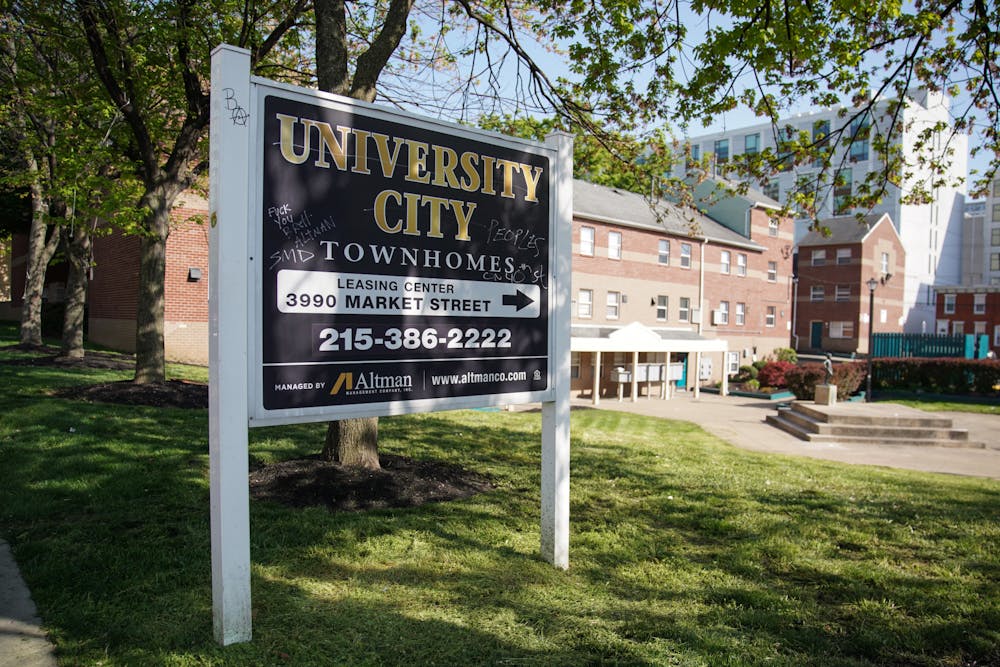
As the eviction deadline for the University City Townhomes approaches, its owners are turning to Philadelphia’s Eviction Diversion Program to help relocate the remaining residents.
Under a recent $3.5 million settlement between the City of Philadelphia and IBID Associates, the developers of the property, all residents are supposed to leave the UC Townhomes by Aug. 15. According to IBID spokesperson Kevin Feeley, there are currently no more than 10 residents still living on the site.
The Eviction Diversion Program is a free resource provided by the city to resolve conflicts between landlords and residents without costly legal action. Per Philadelphia law, all landlords must participate in the program before pursuing eviction in court.
The program, which was created during the COVID-19 pandemic, provides mediators between landlords and tenants. Feeley told The Daily Pennsylvanian that the residents have selected two such advisors — Community Legal Services, a nonprofit organization that provides legal help to low-income Philadelphians, and Clarifi, a nonprofit housing and financial counseling group.
The residents are also receiving assistance from United Way of Greater Philadelphia and Southern New Jersey, a nonprofit committed to fighting poverty in the local area.
The organization was tapped by the city to help distribute the settlement funds from IBID to the residents, provide financial counseling services, and refer tenants to other optional services to “minimize negative financial impacts on public benefits and/or taxes,” according to a spokesperson from United Way. It began this outreach in July.
Since IBID announced its decision to opt out of the Section 8 contract, which preserved the UC Townhomes as low-income housing in 2021, residents have struggled to find suitable housing alternatives. This is due in part to the fact that landlords in Philadelphia are not legally required to accept the portable housing vouchers which IBID provided — and many choose not to.
Feeley noted that this challenge does not fall under IBID’s responsibility to the residents.
“Our job was to help them obtain housing vouchers, and that’s what we did,” he said. “Whether a landlord at another property accepts them is not really anything we have to do with.”
IBID is hopeful that with the help of the EDP, it will be able to relocate all the remaining residents by Aug. 15. However, what comes next is a gray area, as Feeley said that no final decisions have been made regarding what to do if residents cannot find housing by the deadline. He noted that it will come down to a reassessment of the factors at the time.
“Are there just two or three families left who are working to find their way to another place and something’s holding it up?" Feeley said. "That creates one set of circumstances, so you just have to assess it at that point."
After Aug. 15, IBID is free to begin developing the site, with 70 units set aside for the city to preserve affordable housing. Feeley told the DP that IBID’s goal from the beginning was to divide the property between commercial and residential use, but that with changes in the economy and spiking interest rates, the ultimate designation of the land is still undecided.
The Daily Pennsylvanian is an independent, student-run newspaper. Please consider making a donation to support the coverage that shapes the University. Your generosity ensures a future of strong journalism at Penn.
Donate



